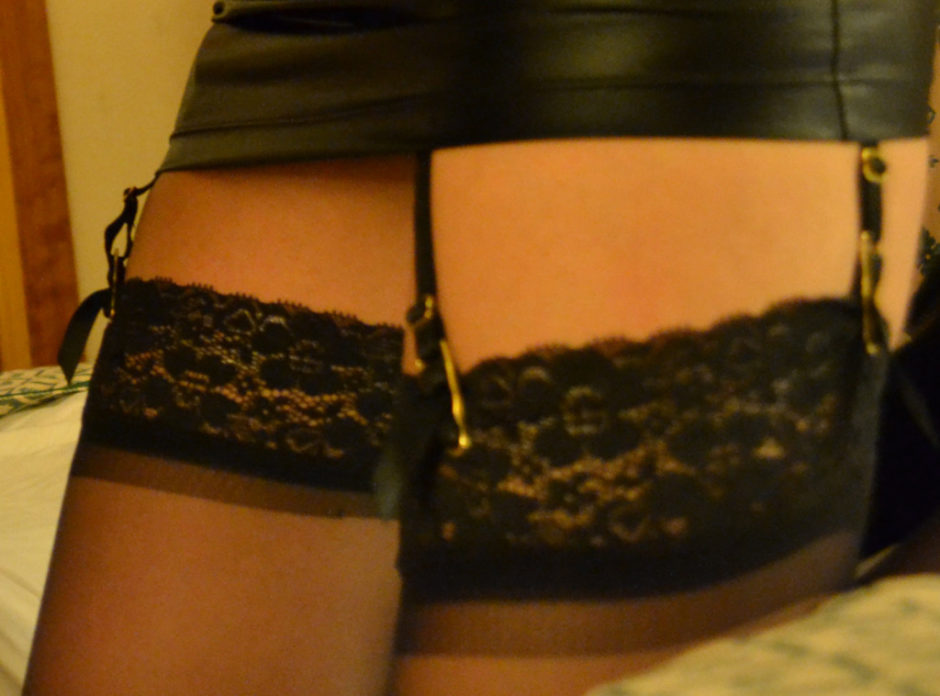Who’s Afraid of Black Sexuality? (7 en slot)
Following the report, which the CDC later admitted was misleading, several black scholars and scientists spoke up about the way medical research is conducted on African-Americans. Too much research, they said, focuses on clinics in poor, urban areas where people are more likely to use drugs or have sexually transmitted diseases. The data from those populations, they said, cannot be used to form generalizations about all black people—or about black versus white people.

Velma M. Murry, a sociologist at Vanderbilt University whose research is on the black middle class, has found evidence that contradicts national reports about sexually transmitted diseases among blacks. She has noted that middle-class African-American girls delay having sex two years beyond the national average for all girls. What is missed is “the positive practices of black families—the practices that work for us, that lead to better physical and psychological health.”
In sociology, public policy, and public health, scholars have been pushing researchers to look up from diagrams and charts of health statistics to develop studies that speak to the people being studied, rather than to the assumptions and the culture of the researchers who produce the studies.
For example, Northwestern’s Watkins-Hayes has explored the economic and social-survival strategies of women living with HIV and AIDS in the Chicago area. Seeing that much of the news-media focus and LGBT activism involve white communities, Mignon R. Moore, a sociologist at UCLA, sought to gather information by following more than 100 middle-class and working-class black lesbians for three years to provide insights into how black culture helps shape their identities and family formation. Leon E. Pettiway, a professor emeritus in the department of criminal justice at Indiana University at Bloomington, has moved beyond statistics on street crime with his 1996 book, Honey, Honey, Miss Thang, a poignant look at five gay, drug-using transvestites who struggled to retain some sense of dignity in the face of substance abuse and hustling to stay alive.
Old taboos are falling. After all, the country now has a black president who has declared his support for same-sex marriage. Exploring lived sexuality, recognizing the black sexual experience in all its diversity—including pimps, prostitutes, transsexuals, and porn stars—is freeing intellectual debate from old fears and inhibitions. But scholars say it’s not just a matter of widening their research agenda. It means bringing the insights about black history and culture, about the structures of racism and pathology, into public-health discussions of AIDS, drugs, prison conditions, and molested children.
These scholars say it’s a matter of saving lives.
Stacey Patton is a staff reporter at The Chronicle. She holds a Ph.D. in history from Rutgers University at New Brunswick and is the author of That Mean Old Yesterday (Simon & Schuster, 2007), a memoir about growing up in foster care and the historical roots of corporal punishment in African-American families.
Corrections (12/3/2012, 10:17 a.m.). Because of an editing error, this article originally misreported Leon E. Pettiway’s institution. He is at Indiana University at Bloomington, not at the University of Wisconsin at Milwaukee. And Darieck Scott is a member of the department of African-American studies at the University of California at Berkeley, not the department of African studies.
Key Books in Black Sexuality Studies
Honey, Honey, Miss Thang: Being Black, Gay, and on the Streets, by Leon E. Pettiway (Temple University Press, 1996)
The Boundaries of Blackness: AIDS and the Breakdown of Black Politics, by Cathy J. Cohen (University of Chicago Press, 1999)
Queering the Color Line: Race and the Invention of Homosexuality in American Culture, by Siobhan B. Somerville (Duke University Press, 2000)
Traps: African American Men on Gender and Sexuality, edited by Rudolph P. Byrd and Beverly Guy-Sheftall (Indiana University Press, 2001)
Longing to Tell: Black Women Talk About Sexuality and Intimacy, by Tricia Rose (Farrar, Straus and Giroux, 2003)
Black Queer Studies: A Critical Anthology, edited by E. Patrick Johnson and Mae G. Henderson (Duke University Press, 2005)
Why I Hate Abercrombie & Fitch: Essays on Race and Sexuality, by Dwight A. McBride (New York University Press, 2005)
Exploring Black Sexuality, by Robert Staples (Rowman & Littlefield, 2006)
Black Sexual Politics: African Americans, Gender, and the New Racism, by Patricia Hill Collins (Routledge, 2004)
Once You Go Black: Choice, Desire, and the Black American Intellectual, by Robert Reid-Pharr (New York University Press, 2007)
Private Lives, Proper Relations: Regulating Black Intimacy, by Candice M. Jenkins (University of Minnesota Press, 2007)
Blackness and Sexualities, edited by Michelle M. Wright and Antje Schuhmann (LIT Verlag, 2007)
Sweet Tea: Black Gay Men of the South, by E. Patrick Johnson (University of North Carolina Press, 2008)
Bulldaggers, Pansies, and Chocolate Babies: Performance, Race and Sexuality in the Harlem Renaissance, by James F. Wilson (University of Michigan Press, 2010)
¡Venceremos?: The Erotics of Black Self-Making in Cuba, by Jafari S. Allen (Duke University Press, 2011)
Invisible Families: Gay Identities, Relationships, and Motherhood Among Black Women, by Mignon R. Moore (University of California Press, 2011)
